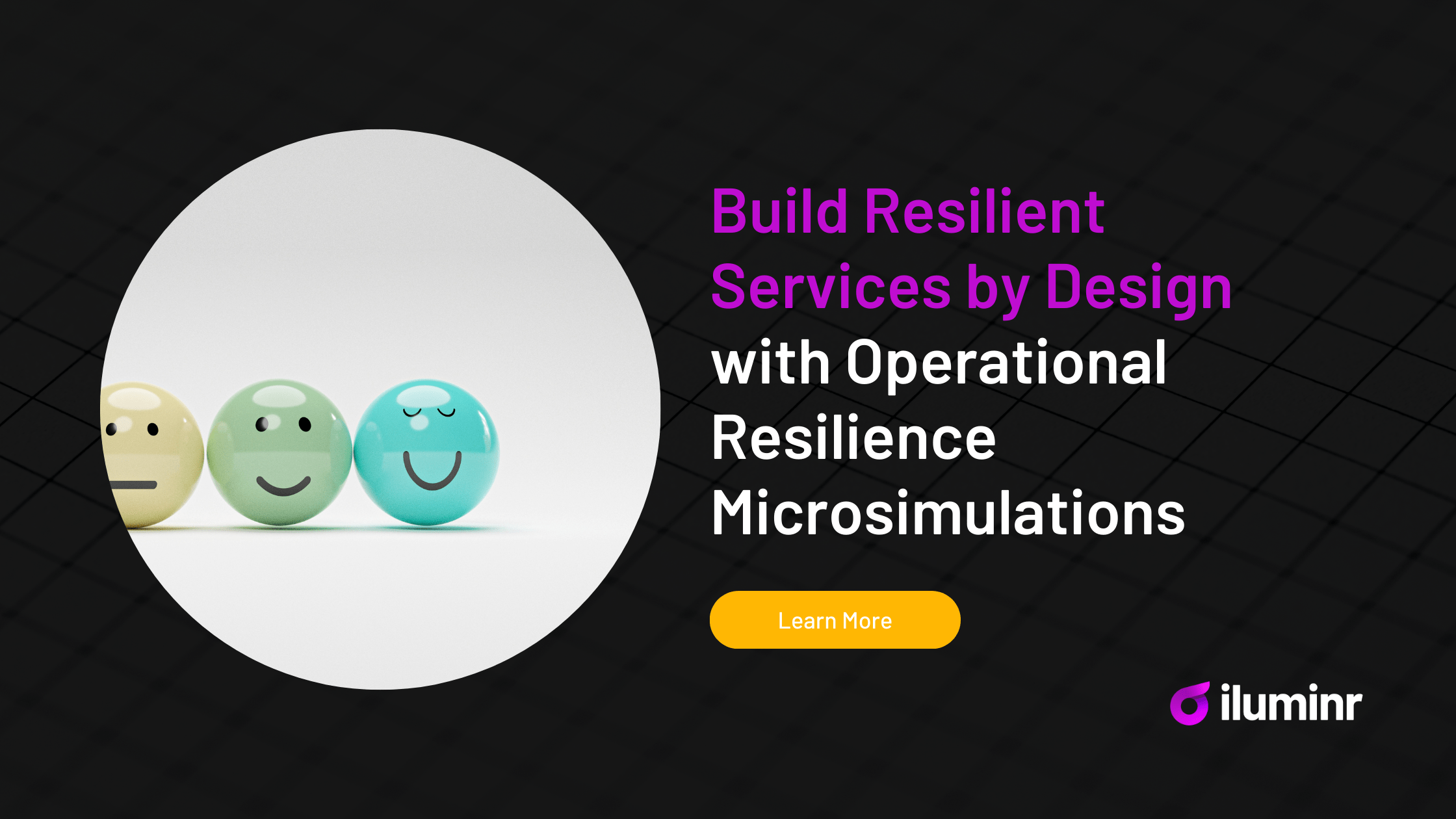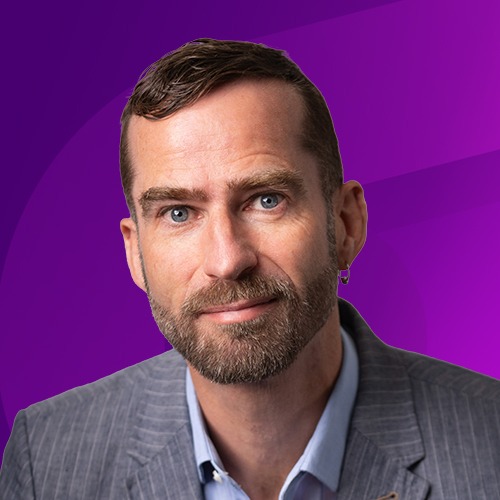iluminr Gamechangers in Resilience is an interview series that shines a light on the trailblazers and innovators transforming the fields of risk, resilience, security, and compliance. Through in-depth conversations with industry leaders, this series uncovers the strategies, insights, and technologies that are shaping the future of organizational resilience.
Marco Felsberger was born and raised in Vienna and has worked in sectors ranging from finance and technology. His journey has taken him through the intricacies of risk & security management in supply chains, ensuring businesses remain resilient in the face of unforeseen challenges. His approach is rooted in identifying fragility and vulnerabilities and addressing them proactively.
Q: How did you get your start in the field of risk and resilience?
Marco: My first contact with risk management was in the Austrian Army. As paratroopers, we had to deal with “applied risk management.” Of course, it wasn’t like risk management in organizations, but it gave me an intuition for different kinds of risks, especially for those with small probabilities and high impact. This experience significantly influenced my future career.
After that, I worked in logistics for a short time. In my early twenties, I started a bachelor’s degree program alongside my full-time job, called Integrated Security and Risk Management. Ever since, I have worked in this field. I began in banking, then worked for a software development company, and for the last eight years, I have been the Head of Resilience & Risk in the field of supply chains. In my current role, I am a Senior Advisor for Supply Chain Resilience at Prewave.

Q: You approach risk and resilience through the lens of systems thinking. Can you explain what systems thinking is and how it benefits teams when leading them through change?
Marco: I always wondered why some logical and seemingly good approaches failed. Initially, I thought it was due to poor execution, but it wasn’t. The risk managers missed a crucial dimension: the system as a whole. This realization led me to delve into resilience, which, for me, is about systems. Risk management and business continuity focus more on parts of the system.
Once you see it, you can’t unsee it. I use systems thinking like a pair of different glasses, helping me understand the world better. When we think in systems, we realize that optimizing or hardening parts may not give the desired results. In fact, it could worsen the situation.
For example, a motivated business continuity manager might implement redundancies and backup plans to make the company more resilient. However, the company needs profit and cash flow to survive, and all these measures cost money, which is a great risk hedge in itself.
Another example is cascading risks, you may safeguard departments or branches of the company. However, due to reinforcing feedback loops, the harm from a risk event increases non-linearly, which would not be anticipated without systems thinking.
Training colleagues and teams in systems thinking helps them get a better understanding of the whole, leading to a better allocation of resources. It also helps during times of change by highlighting where to focus and what must work. Essentially, it is a very helpful way to view the world.
Q: Could you share a particularly challenging scenario you’ve encountered and how you successfully navigated it?
Marco: Over the years, I’ve faced several critical and challenging scenarios. The ones closest to my heart are those where people’s lives are at stake, such as during the onset of the war in Ukraine. The company I worked for had a branch there, and we had to care for our local employees as well as expats.
In unexpected situations, cooperation and solution orientation within the company are crucial. During the start of the war in Ukraine, we had to act quickly, which was only possible because all related departments and even branches in other countries helped. We must maintain the ability to improvise and build strong ties within the company to approach the right people quickly, which requires a level of trust.

Q: In your view, what often overlooked aspect of risk management deserves more attention from organizations striving to enhance their resilience?
Marco: Unfortunately, there are many. Risk departments often produce numerous spreadsheets with risk assessments, but these risk registers are often useless as they fail to list the most interesting and critical risks.
Another important aspect is that risk managers try to manage risks themselves. However, risks must be managed by the risk owners, who should be trained to recognize risks and understand their nature. Ideally, risk teams should only provide expert analysis and training.
In general, training and enhancing people’s capabilities to deal with uncertainty is often overlooked. We try to manage away all risks, depriving people of the opportunity to learn and manage small crises. We hope they can handle the big ones we couldn’t prevent, which is tough.
Q: There can be, many times, a tug-of-war between resilience teams, the business, and regulators over expectations. How do you think about that?
Marco: There will always be a discussion about budgets between business and resilience teams, which is good. The business needs to make money, and we usually help prevent losing money. Acknowledging this fact and understanding the company’s revenue streams makes the business more open to discussions.
Systems thinking helps identify where to invest and where to be more lenient. Often, we waste money and resources by spending in unnecessary areas.
When dealing with regulators, we must act smart. Regulators stick to standards and norms because they can’t know every proprietary system. While I’m not a fan of rigid standards and classic approaches, we need to make the effort to explain our methods to regulators or, in the worst case, have shadow systems—one set of documents for regulators and another for the real work.
I haven’t worked in a highly regulated field in the last eight years (luckily ). My team and I were measured by what worked.
Q: Is there a leadership balancing act or tension that feels particularly relevant right now?
Marco: People are still tired and exhausted after COVID and what is often called the polycrisis. We live in challenging times, and people struggle with constant bad news. This, coupled with a new generation entering the job market and a strong shift toward remote work, keeps managers on their toes.
Becoming a good leader is my top priority. I recognize that leadership isn’t an innate ability—it can be learned. There are tools and concepts that help along the way. Learning these and supporting my team as much as possible is crucial for me.
Q: What is the role of scenario testing in that process?
Marco: Scenario testing is powerful. It helps in many ways. It makes people realize how difficult it is to create a good plan and makes them more understanding when plans need to change. It trains the response muscle, allowing you to learn from each scenario.
Additionally, scenario testing helps identify important indicators to measure progress and determine if you are still on track. If done well, it also serves as a team-building exercise, providing a sense of accomplishment and making the company more resilient.
Q: People generally don’t like change and uncertainty. How do you get people to be open to the idea of transformation?
Marco: People often resist change because they don’t trust their ability to respond properly. However, this can be trained. Reminding people of past situations where they successfully managed change and uncertainty helps build confidence.
I also remind them of the opportunities that lie in uncertainties. Being open to change has greatly benefited my life. Though it doesn’t come naturally to most people, regularly stepping out of our comfort zone makes us more resilient, eventually expanding our comfort zone.
We must remember that we have managed difficult situations before and can do so again. Fortunately, very few situations are life-or-death.
Q: Where do you see the field of operational resilience heading in the next five years, especially in the context of AI and digital transformation?
Marco: The field will change significantly. I already use AI extensively to enhance my knowledge and perform various analyses. The company I work for, Prewave, is a leading AI company in Supply Chain Compliance and Resilience. Using AI makes it less frightening and reveals more possibilities, making our field exciting.
I teach Resilience and Risk Management at three universities of applied sciences in Austria and Germany. I always encourage my students to use AI as much as possible. I also share use cases on LinkedIn because I believe many people in our field will benefit from it, but they need to see how it can help and be used.
We are at a pivotal point, moving away from rigid plans and formality to more agile and adaptive approaches.
On a basic level, I think people will realize that resilience is more than BCM and crisis management. It involves balancing contingency measures and profit, capabilities and procedures, acknowledging uncertainty, and detailed planning.
Q: What is the leadership playbook you are writing for yourself in real time?
Marco: Ha, great question. I have a clear plan and a set of tools that I find useful for handling challenges. However, intuition and gut feeling based on good heuristics play a big role.
I often think about how my actions or words might affect others and how I would feel in their shoes. This is currently the best I can do. Leadership is a long journey where we’ll get many things right and wrong. Being open and approachable helps overcome challenges. Not sure if this was a good answer, but this is how my real-time leadership playbook looks.
You can learn more about Marco’s experience in Risk and Resilience at our upcoming webinar – Tough Truths: Designing for Resilience in an Uncertain World. Save your seat.
















